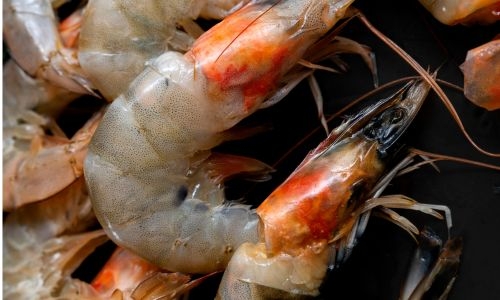The Chief Prosecutor of Ministries and Public Entities in Bahrain has announced that five individuals have been referred to court for illegal shrimp fishing using bottom trawl nets during a ban period. The case originated from a report by the Coast Guard leadership, detailing the arrest of four Indian nationals in the Khor Fasht area. The individuals were caught fishing for shrimp using prohibited nets on a pleasure boat and attempted to flee upon the arrival of security patrol. The Public Prosecution seized approximately 60 kilograms of fresh shrimp and launched investigations into the matter.
The Public Prosecution has completed its investigation into the illegal shrimp fishing incident and has referred the case to the Sixth Minor Criminal Court. A hearing is scheduled for tomorrow, where the five defendants will face charges related to illegal fishing activities. The case began with the arrest of four Indian nationals in the Khor Fasht area for using bottom trawl nets to catch shrimp during a ban period. The individuals were caught on a pleasure boat and attempted to escape but were captured by security patrol. The incident led to the seizure of approximately 60 kilograms of fresh shrimp.
The involvement of the Chief Prosecutor of Ministries and Public Entities in the case highlights the seriousness of illegal fishing activities in Bahrain. The Public Prosecution’s swift action in launching investigations and referring the case to court demonstrates the government’s commitment to enforcing fishing regulations and protecting marine resources. Illegal fishing practices, such as using prohibited nets during a ban period, can have detrimental effects on marine ecosystems and disrupt the balance of aquatic life. It is crucial for authorities to hold individuals accountable for such violations to prevent further harm to the environment.
The case serves as a warning to individuals engaged in illegal fishing activities in Bahrain. The Public Prosecution’s announcement of the referral of five defendants to court sends a strong message that such actions will not be tolerated. The consequences of illegal fishing, including fines, penalties, and potential imprisonment, should deter individuals from engaging in harmful practices that endanger marine life and violate fishing regulations. By holding offenders accountable, authorities aim to deter future violations and protect the sustainability of marine resources.
In conclusion, the illegal shrimp fishing incident in Bahrain involving the use of bottom trawl nets during a ban period highlights the government’s commitment to enforcing fishing regulations and protecting marine resources. The swift action taken by the Public Prosecution in launching investigations and referring the case to court demonstrates the seriousness with which illegal fishing activities are treated. By holding individuals accountable for violations, authorities aim to deter future offenses and safeguard the sustainability of marine ecosystems. It is crucial for individuals to adhere to fishing regulations and avoid engaging in illegal practices that can harm the environment and disrupt the balance of aquatic life.








